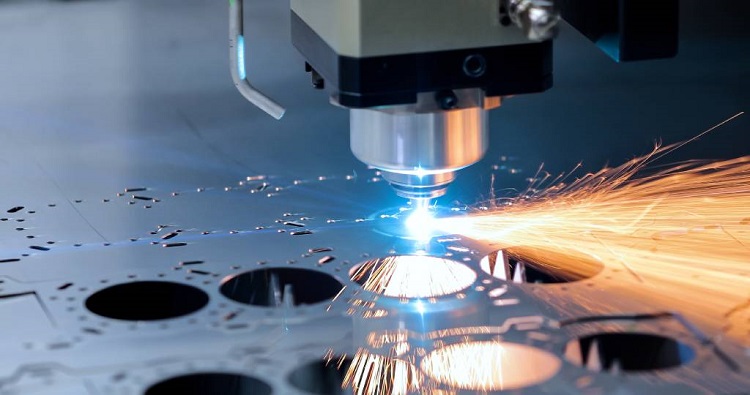CNC (Computer Numerical Control) machines have revolutionized manufacturing by offering precision, efficiency, and automation. Whether you’re a small business looking to scale operations or an established manufacturer upgrading your equipment, choosing the right CNC machine is crucial for optimizing production and ensuring cost-effectiveness.
In this guide, we’ll explore the key factors to consider when selecting a cnc machine for sale that aligns with your business needs.
Table of Contents
Understand Your Business Requirements
Before investing in a CNC machine, assess your specific business needs, including:
- Industry Type: Are you in metal fabrication, woodworking, or plastic molding?
- Production Volume: Do you require high-volume production or custom, small-batch jobs?
- Material Types: Different CNC machines handle different materials such as metals, plastics, wood, and composites.
- Complexity of Parts: If you produce intricate designs, a machine with multi-axis capabilities might be necessary.
Clearly defining your production requirements will help you narrow down the right CNC machine for your business.
Types of CNC Machines and Their Applications
There are various types of CNC machines, each serving specific applications. Understanding their differences will guide your decision.
- CNC Milling Machines: Used for shaping solid materials by removing material with rotating cutting tools. Ideal for metal and plastic components.
- CNC Lathes: Suitable for producing cylindrical parts by rotating the material against cutting tools. Perfect for shafts, bushings, and screws.
- CNC Routers: Common in woodworking, sign-making, and plastics for cutting, carving, and engraving.
- CNC Plasma Cutters: Designed for cutting conductive metals like steel and aluminum using a high-powered plasma torch.
- CNC Laser Cutters: Best for precise cutting and engraving on various materials, including metal, plastic, and wood.
- CNC Grinding Machines: Used for high-precision surface finishing, commonly in automotive and aerospace industries.
Selecting the appropriate type depends on the materials and precision levels required for your production.
Consider Machine Size and Work Area
The size of the CNC machine should match your workspace and production needs. Factors to consider include:
- Work Envelope: The maximum size of the parts the machine can handle.
- Machine Footprint: Ensure you have enough space to accommodate the machine, including clearance for material loading and unloading.
- Weight Capacity: Some machines are designed for heavy-duty materials, while others are lightweight for intricate designs.
If your business frequently produces large parts, opt for a machine with a larger bed size and higher load-bearing capacity.
Accuracy and Precision Levels
Precision is a critical factor in CNC machining. The machine’s tolerance level (e.g., ±0.01mm) determines how accurately it can manufacture parts. Consider:
- Spindle Speed and Power: Affects the cutting performance on different materials.
- Axis Configuration: More axes (3, 4, 5, or 6-axis) provide greater flexibility for complex designs.
- Repeatability: Ensures consistency in batch production.
For industries requiring extreme precision, such as aerospace or medical manufacturing, high-end machines with superior accuracy are essential.
Automation and Software Compatibility
Modern CNC machines come with advanced automation features that improve productivity. Look for:
- CAD/CAM Software Compatibility: Ensure the machine supports software used for designing and programming.
- Automation Features: Robotic arms, tool changers, and smart sensors can increase efficiency.
- Ease of Use: User-friendly interfaces reduce training time for operators.
Automation can significantly impact production efficiency, especially in high-volume manufacturing.
Machine Durability and Maintenance Requirements
Investing in a CNC machine is a long-term decision. Prioritize:
- Build Quality: Machines with rigid frames and high-quality components last longer.
- Maintenance Needs: Some machines require frequent calibration and part replacements.
- Availability of Spare Parts: Check whether replacement parts and support services are readily available.
A durable machine with lower maintenance needs will reduce downtime and operating costs.
Budget and Cost Considerations
The price of CNC machines varies significantly based on size, features, and precision. When setting a budget, consider:
- Initial Investment: Higher-end machines with advanced features cost more but offer better performance.
- Operating Costs: Power consumption, maintenance, and tooling costs.
- Return on Investment (ROI): A machine that improves production efficiency and reduces labor costs will be more profitable in the long run.
If you’re on a tight budget, consider buying a used CNC machine from a reputable dealer. However, ensure it’s well-maintained and meets your specifications.
Supplier Reputation and Support Services
Choose a reliable CNC machine supplier that offers:
- Warranty and After-Sales Support – Look for at least a 1-year warranty with technical assistance.
- Training and Installation Services – Some suppliers offer hands-on training for operators.
- Customer Reviews and Testimonials – Research feedback from other businesses to assess reliability.
A trusted supplier ensures a smooth purchasing process and long-term support.
Conclusion
Selecting the right CNC machine for your business involves careful consideration of production needs, machine type, precision, automation, and budget. Investing in a high-quality machine tailored to your operations will enhance efficiency, reduce costs, and increase profitability. By evaluating these key factors and partnering with a reputable supplier, you can make a well-informed decision that positions your business for long-term success.

